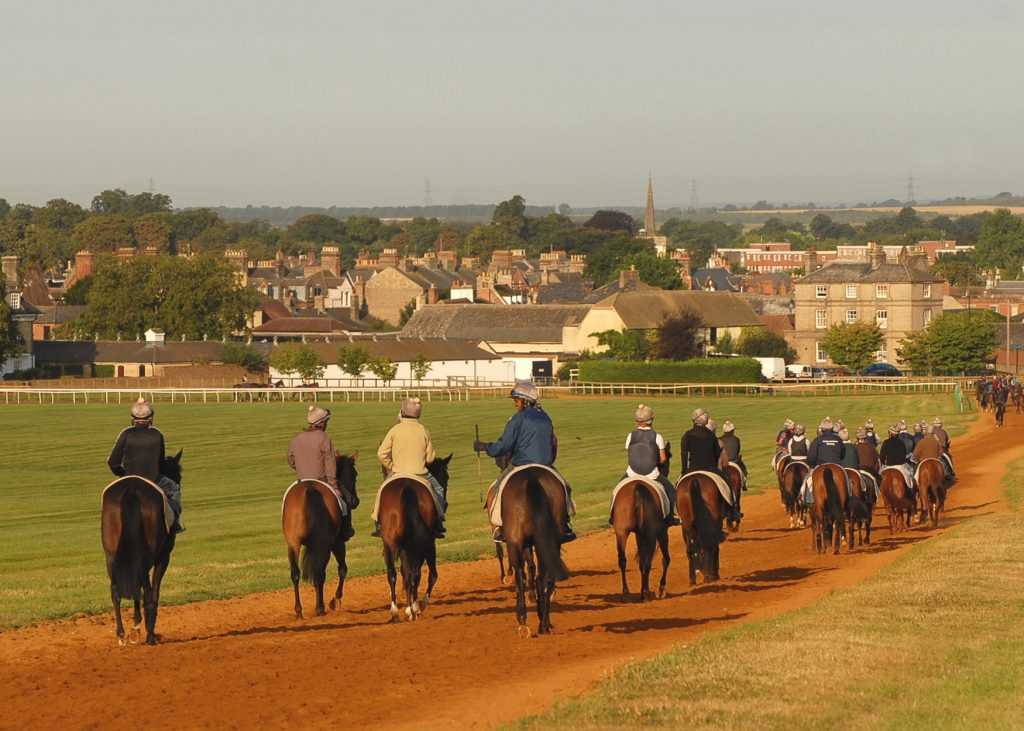Off-track Thoroughbreds, otherwise known as OTTBs, are popular mounts for riders of various disciplines. They require specific nutritional needs which differ when they are on the track versus when they are off. We have gathered some information regarding how to feed an OTTB.
Racehorses exhibit very high intensity levels when exercising, therefore they require increased nutritional needs to keep them healthy. To better understand what food is best for their diet, it’s optimal to first recognize their most important nutritional needs. To maintain a healthy racehorse’s diet, it is crucial to ensure that their diet is rich in energy, minerals, vitamins, and water. In most cases grain and hay will be sufficient, however each horse is different, and your personal practitioner may recommend an extra dietary supplement.
Now once your racehorse leaves the track for his new, more leisurely career, his levels in intense exercise will likely drop drastically. Any time an exercise routine changes significantly, the nutritional needs then the diet need to as well. A diet enriched with energy, vitamins, and minerals is still required, but lesser quantities are essential since an OTTB will not burn off as much of his diet as a racehorse does. Increasing their body condition score and refining their topline will also be needed in many cases.
To provide amino acids for muscle development in this time of lessened movement, consider adding fatty proteins to the new diet. Fat as an energy source can also benefit your OTTB if he is often nervous or hot tempered.
To keep his hindgut healthy and easily reach all of his nutritional needs, use foraging as the main source of the diet. Consider grains as a supplement to be used if the nutritional needs aren’t reaching a sufficient level. Continuing to feed your OTTB grain as the majority of the diet can lead to an interrupted digestive system. Basically, more forage, less grain.
Depending on your horse’s individual needs, you may want to research using complete feeds (for higher fiber), ration-balancer pellets (for low calorie protein and vitamins), or premixed commercial performance goods (for balancing forage portion).
An OTTB’s transition from racehorses to a new leisurely career can be made much easier with a change in diet that will benefit your horse in the long run. Always ask your veterinarian or equine nutritionist for any questions or personal concerns.

